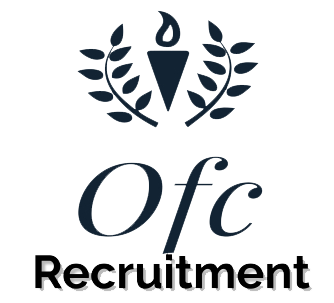Diversity and inclusion are something an increasing number of job seekers are actively looking for when deciding where to work. Around one in three workers and candidates said they would not apply for a role at a business where there was a lack of diversity among its people.
An absence of diversity within the workforce would prevent 41% of LGBTQ+ and 41% of black job seekers and employees from applying for a job with a company.
Chris Pritchard, Managing Director at Search, shares his insight on how businesses can put equality and diversity at the centre of their hiring strategy.
Be mindful of the language used in job adverts
It shows you are committed to equality and that you’re not just accepting candidates from all backgrounds, you’re attracting them.
Chris Pritchard, Managing Director, Search Health & Social Care
Job listings and descriptions can be a “shop window” for job seekers, says Chris. He believes companies should use them as a chance to show how they’re an equal opportunities employer.
“As businesses, we can go one step further than just saying, ‘We welcome all applicants’,” he explains. “A big part of that is the language we use when we’re putting a job description together.
“For example, if someone is recruiting for a Learning Disability Support Worker, it might say ‘Dealing with challenging behaviour’ under the duties, which dehumanises the person with learning disabilities. You could frame it in a very different way, such as saying, ‘Create a positive atmosphere for the service user’.”
By using inclusive language, Chris says it signals to job seekers that “we’re a business that takes equality seriously, and it’s part of our ethos”.
“It shows you are committed to equality and that you’re not just accepting candidates from all backgrounds; you’re attracting them,” he adds.
Chris advises that if businesses are unsure where to start, there are optimisation tools that consider and review the language that is used within job ads.
Another way to show your commitment to your employees and job seekers is to become accredited by trusted third-party bodies. For example, there is Investors in People, which has a range of accreditations from people-centric certifications to investing in wellbeing. There is also the Good Business Charter that businesses can apply for by declaring that they meet the 10 required components, which cover employees, suppliers, customers, and the environment.
Embrace candidates’ questions during interviews
This could be someone who wants to grow a career with you. But they want to feel comfortable within themselves and be able to bring their best selves to work.
Chris Pritchard, Managing Director, Search Health & Social Care
Chris believes interviewers should see a query about their diversity and inclusion policies as a “really positive question from somebody who is looking at joining your company”.
“This could be someone who wants to grow a career with you,” he continues. “But they want to feel comfortable within themselves and be able to bring their best selves to work.
“Anyone conducting an interview should be ready to give an interviewee an answer or engage them in conversation about it.”
Chris believes training on a company’s equality and diversity policies is important for interviewers, so they can effectively and confidently answer any questions from a candidate.
“It should be no holds barred, ‘what would you do in this situation?’ interactive training, not just watching a few videos,” he adds. “So, you’re actively championing diversity as a business.”
He adds that another approach employers can take is to declare their commitment to equal opportunities, diversity, and inclusion at the beginning of an interview, encouraging candidates to ask questions at the end.
Turn unconscious bias into conscious bias
Ultimately, to stop unconscious bias, you need to make it conscious bias. So, take the unconscious bit out of it.
Chris Pritchard, Managing Director, Search Health & Social Care
If you are advertising a job, one way of removing bias is to have your HR team remove any identifying factors from applications, including but not limited to candidates’ names, age, location, gender, sexuality, marital status, and race.
However, as Chris explains, “More and more recruitment is done via CV boards and on LinkedIn, which means you’ve got at your fingertips a lot more information about the individual than you would if it were solely via a job advert.
“Therefore, it goes beyond what to put in a job advert. It’s about managers who are hunting for their own staff being aware and not having situations where you have completely homogenous teams.
“I think ultimately, to stop unconscious bias, you need to make it conscious bias. So, take the unconscious bit out of it.
“Employers shouldn’t necessarily be looking for clues about whether that person reflects them as an individual. Whether it’s trying to work out how old someone is, their ethnic background, sexuality, gender, or something else. Take that out of the equation.
“Companies should only look at a candidate’s skills when they want to build their teams.”
As a Managing Director at Osa First Care, Alex supports the Health & Social Care (Temporary), Nursing and Social Work industries. “I think people can take a bit of a lead from healthcare,” he explains. “It is a very diverse sector with a diverse workforce right to the top. It’s something that I’m proud to represent, and I use my recruitment knowledge and methods to ensure that equal opportunities are upheld within healthcare.”
His final advice for businesses “It’s about championing diverse teams and understanding how to create that by having teams with employees of all ages, people with disabilities, different genders, and ethnic backgrounds. Don’t rule out anyone from any background from joining your company,” says Alex.
Partner with Osa First Care
With more than 25 years’ experience in recruitment, we’re well-placed to support your business and help you hire top talent. Through our proven candidate attraction methods, we have a large talent pool to help you recruit exceptional people.
Get in touch today with our team of recruitment specialists to see how we can support your business goals.

